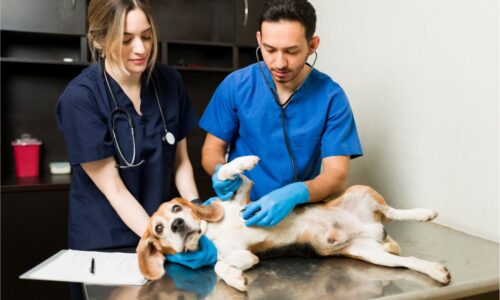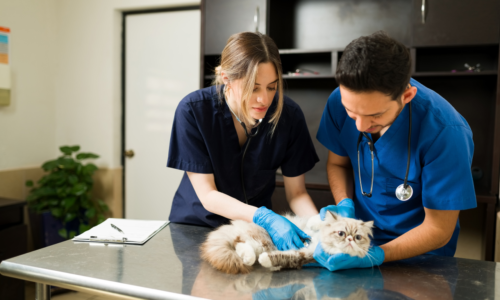Vaccines are super important for keeping your dog or cat in tip-top shape. The shots protect them from big scary illnesses like rabies, parvo, distemper, and feline leukemia. Most of the time pets do just fine, but every so often they might feel a little blah afterward, sort of like how we sometimes feel sore or tired after our own vaccines.
Understanding these normal minor effects lets you keep a close eye on your pet and decide when to call the vet. Here are the most common side affects you might see along with tips on when to seek professional help.
1. Mild Lethargy or Fatigue
After a vaccination, it’s normal for your dog or cat to want to nap more and move a little slower for a day or two. That extra sleep shows their immune system is hard at work. In most cases, pets bounce back and return to their usual, playful selves within 24 to 48 hours.
2. Mild Fever
A small rise in temperature often follows a vaccination, and it usually goes back to normal all on its own. The fever is seldom serious and doesn’t need medicine. Still, if the temperature stays high after two days, give your vet a call just to be safe.
3. Loss of Appetite
Right after a shot, some pets eat less or skip a meal altogether. As long as they still drink water and are wolfing food again in a day or two, you can relax; that mild dip in appetite usually isnt a big deal.
4. Swelling or Tenderness at the Injection Site
You might notice a small lump or feel some tenderness where the needle went in. That little swell is just the body doing its job and should go down within a few days. Try not to poke it, and do what you can to keep your pet comfy.
5. Mild Sneezing or Coughing (for Intranasal Vaccines)
With nose-based vaccines, dogs and cats can snuffle, cough, or drip for a short while. These little side effects almost always clear up within a couple of days.
Signs your pet needs a vet?
Most reactions are minor, but serious ones can happen. Get to the vet fast if you see
-vomiting or diarrhea
-swelling of the face or legs
-hives or scratching that won’t stop
-trouble breathing
-collapse or seizures
These signs may point to an allergy and need quick action.
Conclusion
Getting your pet vaccinated is one of the best ways to keep it healthy. Most reactions are small and fade quickly, but you should still watch your animal for a day or two. If anything looks off or you just have a question, call your vet; your pet deserves the extra peace of mind.




